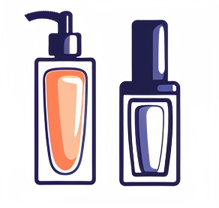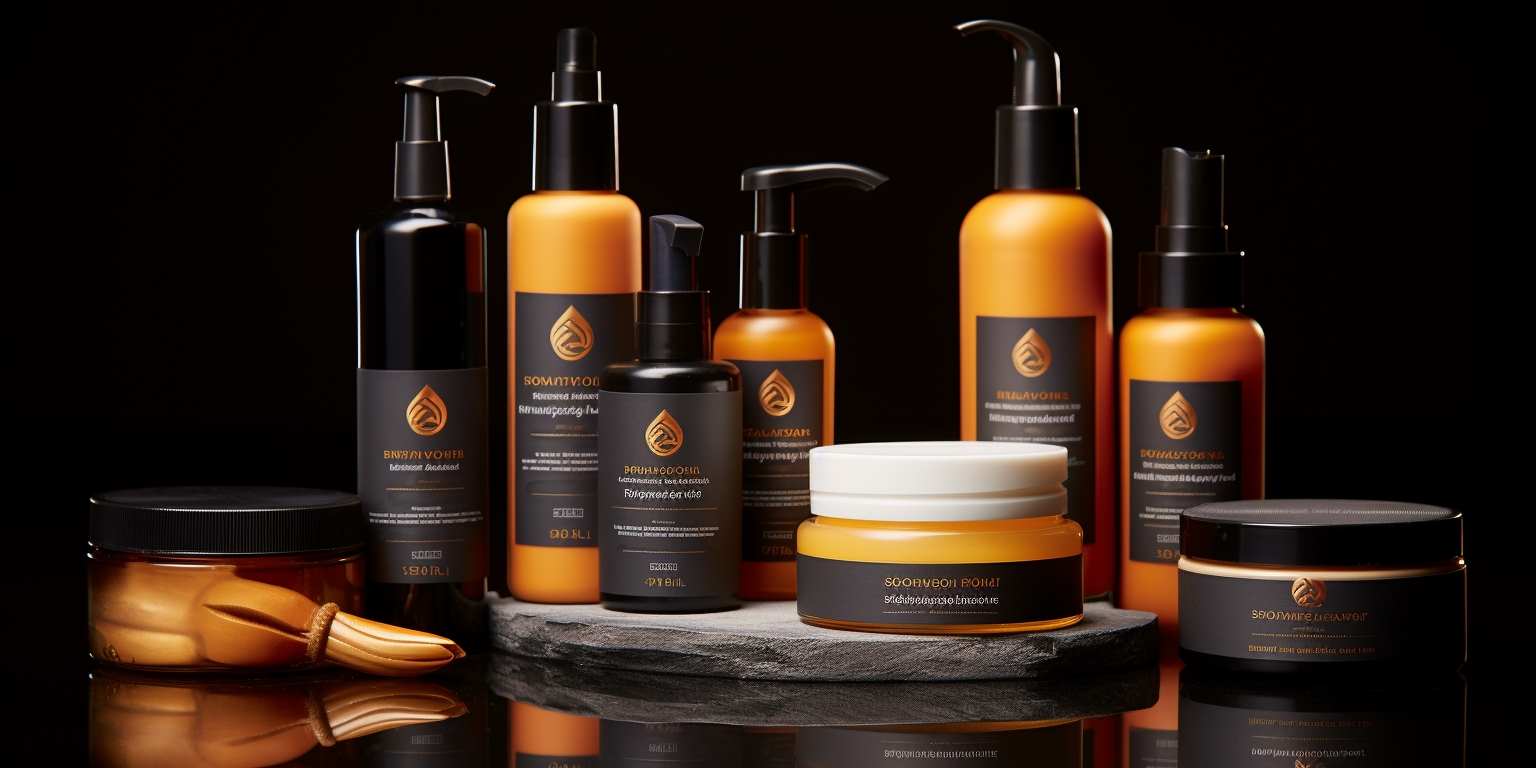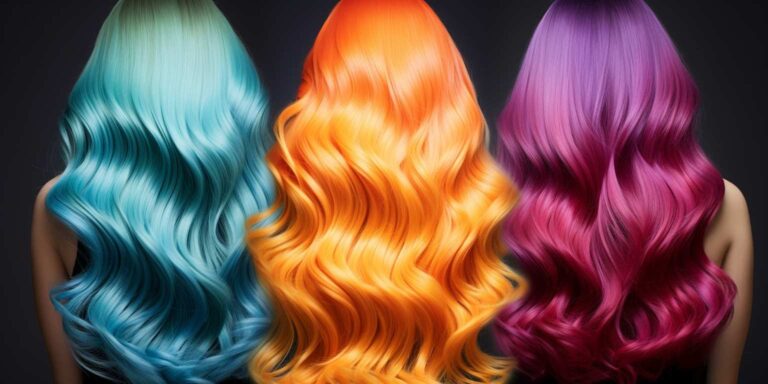The ultimate guide to choosing dry scalp shampoo
First and foremost, look for shampoos specifically formulated for dry scalp conditions. These shampoos typically contain hydrating ingredients such as aloe vera, glycerin, or hyaluronic acid to replenish moisture and soothe irritation.
Fragrance-free options are crucial for those with sensitive scalps. While a pleasant scent might seem appealing, it can exacerbate dryness and irritation. Opt for unscented formulas to avoid potential triggers.
Another essential consideration is the pH balance of the shampoo. Our scalps have a natural pH level, and disrupting this balance can lead to further dryness and discomfort. Look for shampoos labeled as pH-balanced or with a pH level close to that of the scalp (around 4.5 to 5.5).
Moisturizing ingredients such as coconut oil, argan oil, or shea butter are key players in combating dryness. These natural emollients lock in moisture and nourish the scalp, promoting healthier hair growth.
| Ingredient | Benefits |
|---|---|
| Aloe Vera | Calms irritation and hydrates the scalp. |
| Glycerin | Attracts moisture to the scalp, preventing dryness. |
| Hyaluronic Acid | Hydrates and plumps the scalp, reducing itchiness. |
Consider your hair type when selecting a dry scalp shampoo. Those with curly or coarse hair may benefit from richer, creamier formulas, while those with fine hair might prefer lightweight, non-greasy options.
Lastly, avoid harsh sulfates such as Sodium Lauryl Sulfate (SLS), which can strip the scalp of its natural oils and worsen dryness. Instead, look for gentler surfactants like Coco-Glucoside or Cocamidopropyl Betaine.
Hydrating scalp treatment wash: your first step to relief
If you’re struggling with a dry, itchy scalp, a hydrating scalp treatment wash could be your first step towards relief. These specialized shampoos are designed to hydrate and nourish your scalp, helping to alleviate itchiness and irritation. They can also improve the overall health of your scalp, promoting healthier hair growth.
When choosing a hydrating scalp treatment wash, look for ingredients like aloe vera, coconut oil, and hyaluronic acid. These ingredients are known for their moisturizing properties and can help to hydrate and soothe your scalp.
It’s important to use a hydrating scalp treatment wash regularly to see the best results. Try to wash your hair with it at least twice a week, or as directed on the product label. Massage the shampoo into your scalp gently, using your fingertips to stimulate blood flow and ensure that the product is evenly distributed.
In addition to using a hydrating scalp treatment wash, you may also want to incorporate other scalp care practices into your routine. Using a scalp scrub once a week can help to remove dead skin cells and product buildup, allowing your scalp to better absorb moisture. You may also want to consider using a scalp serum or oil to provide extra hydration.
Itch relief dry scalp cleanser: finding your solution
Itch relief dry scalp cleanser is a necessity for many individuals battling the discomfort and embarrassment of a dry, itchy scalp. Finding the right solution can be a game-changer, restoring comfort and confidence. Whether your dry scalp is a result of environmental factors, product buildup, or underlying skin conditions like eczema or psoriasis, there are effective cleansers tailored to address your specific needs.
When searching for the ideal itch relief dry scalp cleanser, it’s crucial to consider the ingredients. Look for soothing agents such as aloe vera, tea tree oil, and menthol, which can provide immediate relief from itching and irritation. These ingredients also possess anti-inflammatory properties, calming the scalp and promoting healing.
Natural ingredients are often preferred by individuals with sensitive skin or those seeking gentler alternatives to harsh chemicals. Look for products free from sulfates, parabens, and artificial fragrances, as these can exacerbate dryness and irritation. Instead, opt for cleansers enriched with essential oils like lavender, peppermint, and chamomile, which nourish the scalp while alleviating itchiness.
| Key Ingredients | Benefits |
|---|---|
| Aloe Vera | Soothes itching and inflammation, hydrates the scalp |
| Tea Tree Oil | Antibacterial properties, reduces flakiness and irritation |
| Menthol | Cooling sensation, relieves itching |
Consistency is key when treating a dry scalp. Incorporate the cleanser into your hair care routine, using it consistently to maintain scalp health and prevent flare-ups. It’s essential to follow the instructions provided by the manufacturer, as overuse or improper application can lead to further dryness or irritation.
Aside from using an itch relief dry scalp cleanser, there are additional steps you can take to promote scalp health. Gentle exfoliation with a soft brush or scalp scrub can help remove dead skin cells and product buildup, allowing for better absorption of nourishing ingredients. Additionally, incorporating a hydrating conditioner or scalp serum into your routine can provide long-lasting moisture and protection.
Moisturizing strategies for scalp health
When it comes to maintaining a healthy scalp, moisturizing is key. Just as we hydrate our skin to keep it supple and nourished, our scalp requires similar care to prevent dryness, itchiness, and flakiness. Fortunately, there are several effective moisturizing strategies that can promote scalp health and overall hair vitality.
One essential method is to use hydrating shampoos and conditioners formulated specifically for the scalp. Look for products containing ingredients such as hyaluronic acid, glycerin, and aloe vera, which help to attract and retain moisture. These formulations gently cleanse while providing hydration, leaving the scalp feeling refreshed and revitalized.
Another moisturizing technique is to incorporate scalp oils into your hair care routine. Natural oils like coconut oil, jojoba oil, and argan oil have emollient properties that deeply penetrate the scalp, nourishing it from within. These oils can be applied directly to the scalp and massaged in gently, or they can be mixed with your favorite conditioner for an added boost of moisture.
Regular scalp massages are not only relaxing but also beneficial for scalp health. Massaging the scalp stimulates blood flow, which helps to deliver essential nutrients and oxygen to the hair follicles. Additionally, it helps to distribute natural oils evenly throughout the scalp, preventing dryness and promoting a healthy shine.
Humidity plays a significant role in scalp moisture levels. In dry climates or during the winter months, investing in a humidifier for your home can help to maintain optimal moisture levels in the air, preventing the scalp from becoming dry and itchy. Alternatively, wearing a protective hat or scarf outdoors can shield the scalp from harsh environmental conditions.
For those with scalp conditions such as eczema or psoriasis, specialized moisturizing treatments may be necessary. These can include medicated shampoos, corticosteroid creams, or prescription medications to alleviate symptoms and restore moisture balance to the scalp.
The importance of ph balance in scalp care
The pH balance of your scalp is more than just a scientific concept; it’s the very foundation of healthy hair. Understanding and maintaining the pH balance of your scalp is crucial for optimal hair health and overall well-being.
The scalp has a natural pH level ranging from 4.5 to 5.5, making it slightly acidic. This acidity is vital for keeping the cuticle layer of the hair shaft smooth and intact, which in turn, promotes shine and prevents breakage.
When the pH balance of the scalp is disrupted, it can lead to various issues such as dandruff, dryness, itchiness, and even hair loss. Factors like harsh shampoos, styling products, pollution, and stress can all contribute to throwing off this delicate balance.
It’s essential to use hair care products that are pH-balanced to maintain the health of your scalp. pH-balanced shampoos and conditioners help to keep the scalp’s acidity level in check, preventing potential damage to the hair follicles and scalp.
One way to restore pH balance to the scalp is by incorporating apple cider vinegar rinses into your hair care routine. Apple cider vinegar has a similar acidity to the scalp, helping to rebalance the pH level and restore its natural equilibrium.
Another important aspect of scalp care is the role of probiotics. Just as they benefit the gut, probiotics can also help maintain a healthy scalp environment by promoting the growth of beneficial bacteria and inhibiting the overgrowth of harmful microbes.
In addition to using pH-balanced products and incorporating scalp-friendly remedies like apple cider vinegar rinses and probiotics, it’s essential to pay attention to your overall lifestyle. Eating a balanced diet, staying hydrated, and managing stress levels can all contribute to a healthy scalp environment.
Selecting the right ingredients for dry scalp relief
Dry scalp can be a persistent annoyance, causing discomfort and sometimes embarrassment. Selecting the right ingredients for dry scalp relief is crucial for effectively addressing this issue. Whether you’re dealing with flakiness, itchiness, or overall dryness, understanding the properties of various ingredients can help you tailor your hair care routine for optimal results.
One key ingredient to look for in products aimed at dry scalp relief is moisturizing agents. These include substances like aloe vera, glycerin, and hyaluronic acid. Moisturizers help replenish lost hydration, soothing dryness and reducing flakiness. They work by attracting water molecules to the skin and sealing in moisture, creating a protective barrier against further dryness.
Another essential component is anti-inflammatory agents. Dry scalp often goes hand in hand with irritation and inflammation, leading to itchiness and discomfort. Ingredients such as tea tree oil, chamomile extract, and almond oil possess soothing properties that can calm inflammation and relieve itching. These ingredients also help promote a healthier scalp environment, reducing the likelihood of future flare-ups.
Exfoliating agents are also beneficial for dry scalp relief. Dead skin cells can accumulate on the scalp, contributing to flakiness and clogged pores. Ingredients like salicylic acid, lactic acid, and fruit enzymes help gently slough off dead skin cells, unclogging follicles and promoting better absorption of moisturizing ingredients. Regular exfoliation can improve scalp health and enhance the effectiveness of other treatments.
When selecting products for dry scalp relief, it’s important to avoid ingredients that may exacerbate the problem. Harsh sulfates and alcohol-based ingredients can strip the scalp of its natural oils, further contributing to dryness and irritation. Instead, opt for gentle, sulfate-free formulas that cleanse without over-drying.
In addition to individual ingredients, consider the overall formulation of the product. Look for hydrating shampoos and conditioners specifically designed for dry scalp, as well as leave-in treatments and scalp serums for targeted relief. Incorporating a scalp massage into your routine can also help stimulate circulation and improve the effectiveness of topical treatments.
Daily routines to prevent dry scalp
To maintain a healthy scalp and prevent dryness, it’s essential to establish daily routines that prioritize hydration and nourishment. Dry scalp can lead to discomfort, itching, and flakiness, but with consistent care, you can keep your scalp balanced and moisturized.
Here are some daily habits to incorporate into your routine:
| 1. Gentle Cleansing: | Use a mild, hydrating shampoo specifically formulated for dry scalp. Avoid harsh sulfates and opt for products containing moisturizing ingredients like aloe vera or coconut oil. |
| 2. Lukewarm Water: | When washing your hair, use lukewarm water instead of hot water. Hot water can strip away natural oils from the scalp, contributing to dryness. |
| 3. Scalp Massage: | Take a few minutes each day to gently massage your scalp. This stimulates blood circulation and helps distribute natural oils, keeping the scalp moisturized. |
| 4. Moisturizing Conditioner: | After shampooing, apply a hydrating conditioner to your hair and scalp. Focus on the ends of your hair and massage the conditioner into your scalp for added moisture. |
| 5. Avoid Overwashing: | Try not to wash your hair too frequently, as this can strip away the scalp’s natural oils. Aim for washing every 2-3 days, or as needed based on your hair type. |
| 6. Protective Hairstyles: | Avoid tight hairstyles that pull on the scalp, as this can lead to irritation and dryness. Opt for loose styles or use silky or satin hair accessories to minimize friction. |
| 7. Hydrating Treatments: | Weekly or bi-weekly, treat your scalp to a deep conditioning mask or scalp treatment to replenish moisture and nourish the skin. |
In addition to these daily routines, it’s important to stay hydrated by drinking plenty of water and maintaining a balanced diet rich in healthy fats and vitamins. Adequate hydration and nutrition support overall scalp health and can help prevent dryness and irritation.







